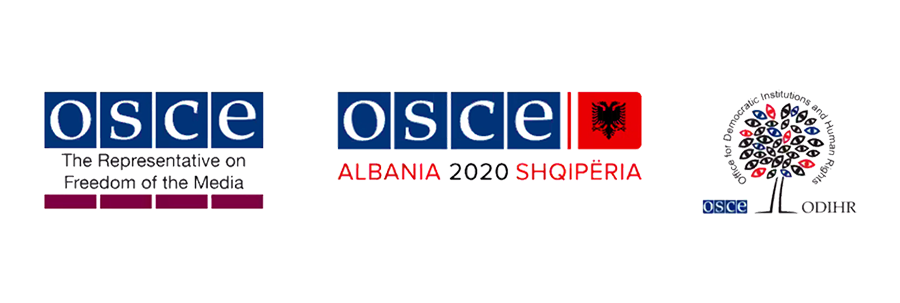On June 22-23, a video conference of the second additional meeting of the Organization for Security and Cooperation in Europe (OSCE) on Human Dimension on the topic "Freedom of expression, mass media and information” was held. The event was attended by experts from more than 50 countries, representatives of institutes and OSCE executive structures, international organizations, civil society and academia.
The participants discussed the following sets of questions: freedom of expression and its relation to other fundamental freedoms; access to information; freedom of mass media; role of independent and pluralistic mass media.
Statement by Oleg Makarov, Director of BISR, at the OSCE Additional Meeting on Human Dimension on the topic "Freedom of expression, mass media and information".
Dear participants of the conference!
The Representative of the Holy Apostolic See said very wise and correct words about the unacceptability of the use of freedom of speech for any kind of discrimination. Freedom of speech is desecrated, if directed at the artificial creation of dividing lines in the society, it creates the atmosphere of mutual mistrust and hostility.
But what do we see now? The issue of COVID-19 is politicized in mass media. We feel that for three months Belarus has been under "media pressure" from "around the globe". There are no medical reasons for criticism in the articles published. Belarusian doctors did not make the terrible choice who lives and who dies. According to our research, 75 per cent of publications use for criticism the statements of the President of Belarus torn out of context. And such articles are published not only about Belarus.
An analogy can be used, when the interview of the chief epidemiologist of Sweden was regarded by most mass media "as a repentance". The specialist was forced to re-convene a press conference to confirm the commitment to the previous approaches. However, the last statement did not cause such a large resonance.
People heard what they wanted to hear.
Do the authors of such publications understand the strategic consequences of their actions for Europe? Today, independent studies of the leading think tanks have concluded that the politicization of the fight against the pandemic could further split the European family.
It is already being felt at the household level by the citizens of the countries that did not hesitate to go their own way in the fight against COVID-19 and openly spoke about it. We see how these citizens become toxic. They are the last, whose right to freedom of movement and economic activity is recovered. This is our new reality, and this is our common problem. We are against incitement of hatred on the international level on the basis of responses to the pandemic. We must all make an effort not to become hostages to such a complicated situation. It is necessary to create fashion for mutual aid. We should share best practices, overcome contradictions and stereotypes of mutual perception of each other. By analogy with international humanitarian aid cargoes, we should think seriously about the ways to provide international informational humanitarian aid. As practice shows, sometimes it is just enough not to escalate the media space.
Based on the norms of the information neutrality and information sovereignty adopted in the national legislation, the Republic of Belarus proposed an initiative to create a digital neighborliness belt at the UN and the OSCE's platforms.
This initiative supported by our common efforts can become a new international narrative of the tolerant and transparent protection of the freedom of speech.
Thank you for your attention!



